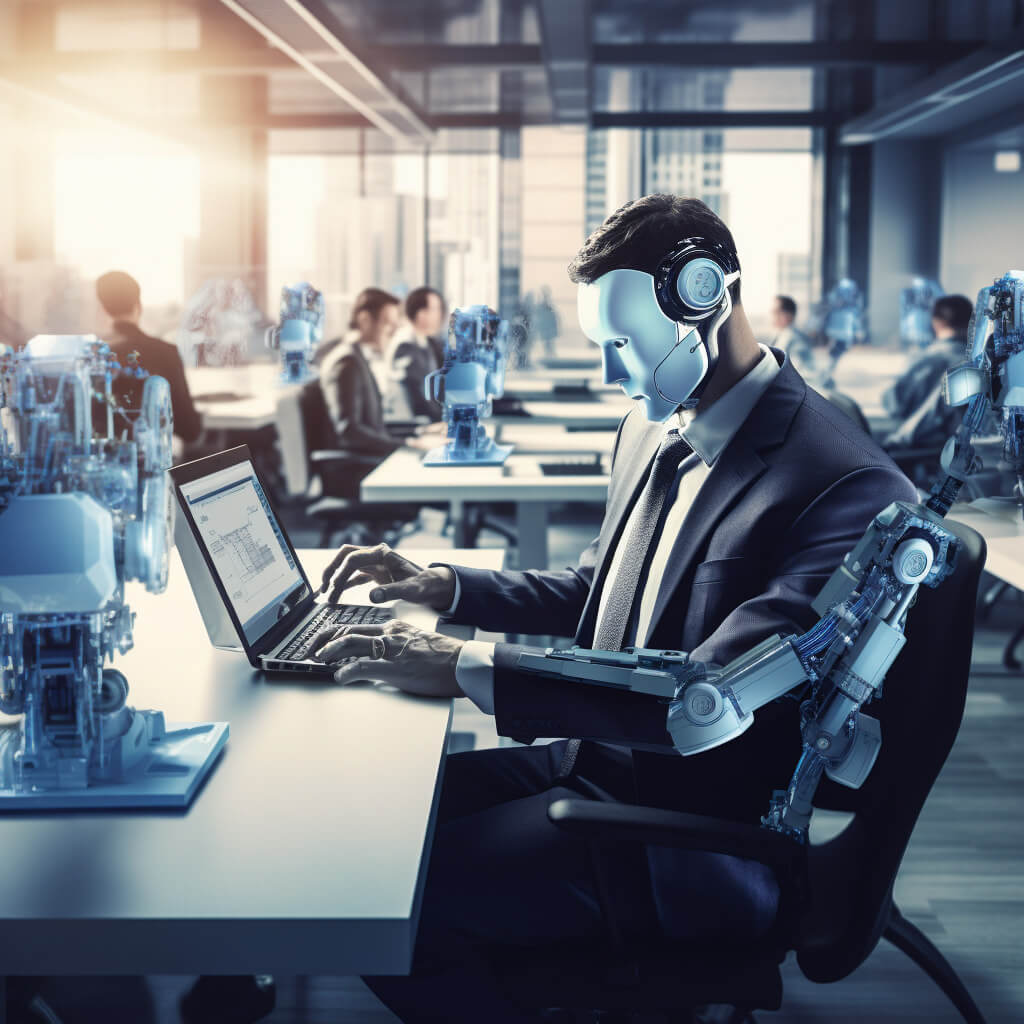IBM CEO Arvind Krishna addressed the ongoing debate surrounding the impact of automation and artificial intelligence (AI) on jobs during his appearance at Fortune’s CEO Initiative conference in Washington, D.C. Krishna emphasized that the misconception linking productivity gains to job losses should be dispelled. He argued that technology will create more jobs than it eliminates and elaborated on IBM’s own experience with this transition.
Krishna began by distinguishing between productivity enhancement and job displacement. He highlighted that as IBM phased out a few hundred back-office HR roles over a three to four-year period, the company concurrently added headcount in software engineering and sales roles. The net result was a substantial increase in jobs, with the creation of approximately 8,000 new positions, far exceeding the 800 roles that were eliminated.
Krishna clarified that no employees were let go due to this transition; instead, certain roles were left unfilled when vacancies arose. He acknowledged that “repetitive white-collar jobs” would be affected by technology, reiterating that AI could automate 10% to 20% of lower-level tasks. However, he stressed that AI would not replace entire job roles since most jobs entail a diverse range of tasks. Instead, he anticipated a 30% increase in productivity among IBM programmers, leading to job growth rather than reduction.
Krishna argued that the increasing productivity brought about by AI and automation would be advantageous for developed countries facing a labor shortage. He contrasted this scenario with developing countries, which would have an ample supply of workers to fill open positions. He underscored the importance of successfully implementing AI to maintain the current quality of life in the developing world.
The rise in productivity, Krishna contended, would enable companies like IBM to expand their workforce. As an example, he pointed to the unexpected emergence of a booming market for software designers after the introduction of smartphones in the mid-1990s. Similarly, Qualcomm CEO Cristiano Amon cited Uber as an example of technology creating entirely new markets.
AI Integration at IBM
Krishna emphasized that AI had already been integrated into critical aspects of IBM’s operations, with approximately three-quarters of chip design at the company being driven by AI. He also mentioned IBM’s consideration of using its own chips to power its cloud computing service, aiming to reduce costs.
The conversation then shifted to the ongoing competition in AI development, particularly between the United States and China. Krishna acknowledged that China had made significant strides in AI, cautioning against underestimating the country’s capabilities.
While Krishna believed that the U.S. led in AI, he acknowledged that the size of this lead was subject to debate. He pointed out that China had certain advantages, including the government’s ability to leverage large private datasets, a practice restricted by privacy and other laws in the U.S. Additionally, China was more willing to explore uses of AI that the U.S. might consider undemocratic. These differences could result in a fragmentation of AI development between the two nations.
Cristiano Amon added that the U.S. remained the global leader in chip design and predicted that it could become the dominant force in AI and its related industries. He stressed the importance of attracting talent to ensure continued leadership in AI and related technologies.
Krishna reminded the audience that the U.S. had been a cradle of AI technology, with generative AI originating from institutions such as Stanford, MIT, Google, and Facebook.





